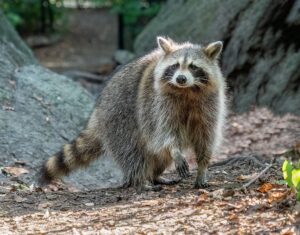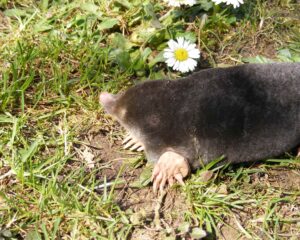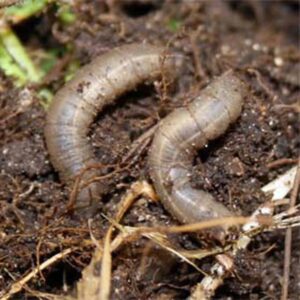3 Common Landscape Pests in Vancouver, WA
In celebration of Groundhog Day we are writing about three unwanted guests and pests in our Vancouver, WA, landscapes. We will cover the best practices to remove and deter them in order to protect our property and plants.
Lawn Maintenance Tips

In celebration of Groundhog Day we are writing about three unwanted guests and pests in our Vancouver, WA, landscapes. We will cover the best practices to remove and deter them in order to protect our property and plants.
We all know how much of a pain pests can be when it comes to our homes and landscapes. Whether they’re destroying our plants, leaving mounds of dirt in our yards, or breaking into our garbage cans, pests are relentless. In preparation for spring we have compiled a list of common pests and solutions to remove and deter them from coming back.
Lethal measures are often assumed the most effective measure for dealing with uninvited critters, however, we advise trying preventative methods first in order to protect you and your loved ones from the poisons, pesticides, and potential diseases that lethal measures can expose you to.
Raccoons
First up is Raccoons. These cute bandits pose a threat to our landscapes and also our pets and children. These cute pests are infamous for the spread and proliferation of the rabies virus which makes it imperative to have a solution for deterring them from our properties. Here are a few practices we recommend:
Outdoor lighting (click here for our outdoor lighting services)
- Being nocturnal, Raccoons prefer the veil of night for their nefarious activities and will generally avoid well lit spaces. Motion sensor lights are a great solution for all sorts of pests and the sudden flash of light can be more than enough to scare them away.
Remove Food Sources
- Securing trash cans lids closed is the general go-to for this problem but other food sources include garden beds, compost, bird feeders, fruit-bearing trees, and grubs under the lawn are all favorite food sources for raccoons and their fellow night time mammal friends. Additionally, removing water sources will help demotivate raccoons from visiting your space.
Block Hideaways
- Raccoons love cozy dark spaces to rest during daylight hours. These often include hollow trees, crawl spaces, and caves. Blocking, filling, or removing these spaces from your property means these critters can’t build a home right next to yours.
Try Scent Deterrents
- Coyote urine, vinegar, garlic, and peppermint oil are just a few examples of scent deterrents that have a successful track record for repelling racoons and other similar pests.
Moles
Moles, while less threatening than a rabid raccoon, pose a threat to our lawns, plants, and sanity. These are the methods we suggest for deterring and removing moles from your property.
Remove Food Sources
- Moles eat their body weight in grubs, worms, and other invertebrates every day. By reducing their food source on our properties they’ll have no reason to stick around. Beneficial nematodes, milky spore, and insecticides are all viable options for eliminating their food sources (more on these below).
Repellents
- Mix 3 tablespoons of castor oil, 1 tablespoon of dish soap, and 1 gallon of water to form simple and safe mole repellent. Soak tunnels and entrances with the mixture for best results. Certain plant species with strong odors can repel moles: marigolds, alliums, fritillarias, daffodils, garlic, and shallots are all examples of plants that will send moles running for the hills.
No-kill traps
- Trapping moles is a viable proactive option that removes moles from your property without killing them. It is also safer than using poison as it cannot cause harm to you, your pets, or other wildlife.
Gas Bombs
- Gas bombs are an effective method for stopping moles in their tracks. Use caution with gas bombs, they are very toxic and will harm your pets. Additionally, moles that die from the gas above ground pose a threat to anything interested in eating them. We recommend restricted pet access outdoors until you have removed the bombs and inspected for moles corpses (oftentimes they will die underground).
Grubs
Last on this short list is the favorite meal of the two previous pests. In the pacific northwest, European Crane Fly (aka mosquito hawks) larvae are the most common grub. Getting rid of them, and grub-like creatures, will have a chain reaction of keeping unwanted pests from destroying your yard and landscape. Grub damage will first display as wilted grass blades in your lawn. If untreated, this will worsen until the grass dies. Another sign for grubs is dug up grass (likely by raccoons).
Control Lawn Moisture
- Reducing watering and installing proper irrigation will ensure your lawn drains of water properly and of your lawn will help reduce grub numbers as they love moist soil just be sure to not let your. For our recent blog on proper lawn drainage, click here.
Milky Spore
- Milky spore is a bacterial disease that targets beetle larvae. It’s natural, safe to use, and is readily available at home and garden stores or online. Once properly established in your yard, milky spore can protect it for up to two decades.
Neem Oil
- Neem oil contains Azadirachtin in trace amounts but higher concentration Azadirachtin can be purchased in more concentrated formulas (these formulas are more effective at killing and deterring beetles but are rated as “relatively non-toxic” whereas neem oil is “non-toxic”). These substances are great alternative to insecticides.
Beneficial Nematodes
- Nematodes are safe, pet-friendly, and once established will protect your yard indefinitely. Nematodes, being very small living parasitic worms, must be purchased alive and properly dispersed in your lawn.
Pesticides
- Pesticides are a general last resort solution and should only be used when these other options have failed you. Carbaryl and trichlorfon are common grub pesticides. Use caution when using with pets and children.
For more information please contact your local pest control





